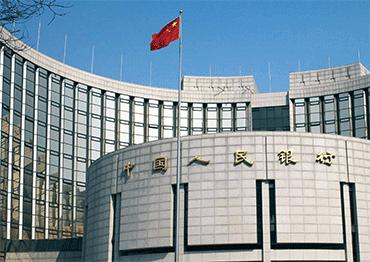The People’s Bank of China (PBoC) announced on April 3 that it would cut the reserve requirement ratio (RRR) for medium and small banks by 1 percent.
This is the PBoC’s third RRR cut in 2020, which it said will release about 400 billion yuan (US$58.5b) for loans in the long run.
The central bank also cut the interest rate on excessive reserves (IOER rate) from 0.72 percent to 0.35 percent on April 7, which has remained unchanged for 12 years. The week before, the PBoC announced it would reopen a seven-day reverse repo with the bidding rate being reduced to 2.2 percent from 2.4 percent. The reverse repo would release 50 billion yuan (US$7.4b) in capital.
China’s GDP contracted 6.8 percent in Q1, the country’s first reported economic contraction since 1992 when Beijing started releasing GDP figures.
Analysts said the measures are in response to the central government’s demand of guiding a rate cut in the loan market and maintaining reasonable liquidity with flexible currency policies.
As many countries are trying to salvage their domestic economies from the Covid-19 outbreak by releasing too much stimulus, China warned against over-stimulation. Chen Yulu, a vice president of the PBoC, said in late March that the central bank will keep liquidity at a reasonable level.
The latest RRR cut targets rural banks, credit cooperatives and regional businesses. Another PBoC vice president Liu Guoqiang said that these financial institutions mainly serve small- and medium-sized enterprises (SMEs). The cut is intended to encourage more loans to SMEs which is important for the recovery of the physical economy.
To prevent too much capital from causing a logjam in the banks, the PBoC will implement the cut in two halves, on April 15 and May 15, 0.5 percent each time.
“Meeting market demand means we will never allow a money shortage. Of course, neither will we allow too much capital to be released nor a sharp depreciation. We must maintain a balanced approach,” Liu said on April 3.
Liu said there were positive signs for the Chinese economy in March compared to February and the pandemic will not impose a long-term negative impact. He said that the PBoC has abundant tools and enough policy space to maintain stable economic growth.

 Old Version
Old Version